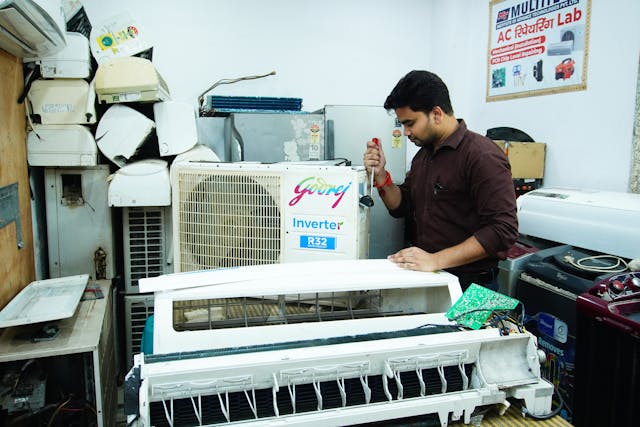With energy costs rising across Australia, many homeowners are searching for smarter ways to manage their electricity bills—especially during the scorching summer months. One of the most effective upgrades you can make is switching to an energy-efficient air conditioning system. But does it truly make a noticeable difference to your power bills?
The short answer is: yes. Energy-efficient systems can significantly reduce your energy consumption. However, several other factors—including air conditioner cleaning and proper maintenance—also play a vital role in achieving those savings. Let’s break it down.
How Energy-Efficient Systems Work
Modern air conditioners are built with advanced technology designed to cool your home using less energy. Features such as inverter technology, programmable thermostats, and zoned cooling allow these systems to maintain stable temperatures without constantly turning on and off.
Inverter-driven air conditioners, for example, adjust the compressor speed based on the cooling needs of your space. Instead of working at full blast and stopping repeatedly, they run continuously at a lower speed—resulting in smoother operation and reduced energy use.
When paired with proper air conditioner cleaning, these systems work at peak performance and use up to 30–50% less energy than older, non-inverter units.
Lowering Power Bills: What Really Matters?
Simply installing an energy-efficient air conditioner isn’t enough to guarantee lower electricity bills. The system must also be used and maintained correctly. Several factors influence energy usage, including:
- System size relative to your home
- How well-insulated your property is
- Your temperature settings and usage habits
- The frequency of air conditioner cleaning
A properly sized, well-maintained system can produce noticeable monthly savings, but neglecting cleaning and care can wipe out much of that benefit.
The Role of Air Conditioner Cleaning
One of the biggest mistakes homeowners make is overlooking air conditioner cleaning. Dirt and dust accumulation in filters, coils, and vents can restrict airflow and force the system to work harder—negating the efficiency gains of a newer unit.
Routine air conditioner cleaning ensures that components are free of dust, mould, and debris. This not only improves efficiency but also helps maintain indoor air quality. Experts recommend professional servicing, including deep cleaning, at least once a year—and more often in dusty or high-use environments.
Additionally, homeowners should do basic air conditioner cleaning themselves every few months by:
- Washing or replacing air filters
- Wiping down vents and registers
- Keeping the outdoor unit clear of leaves and dirt
Neglecting this essential task leads to increased wear and tear, more energy use, and ultimately, higher electricity bills.
Key Benefits of Energy-Efficient Systems
Switching to an energy-efficient air conditioner—paired with regular air conditioner cleaning—offers multiple advantages beyond just lower bills:
- Environmental impact: Reduced energy usage means lower carbon emissions.
- Improved comfort: Modern systems offer more consistent temperatures.
- Quiet operation: Newer models run far more quietly than older units.
- Smart control: Wi-Fi-enabled features let you manage usage from your phone.
- Longer system lifespan: Less strain on the components means fewer breakdowns.
How Much Can You Save?
The actual savings will depend on your current system’s age and efficiency. Replacing an old unit that’s 10–15 years old can cut cooling costs by 30–50%. For a household that spends $1,000 a year on cooling, this could mean $300 to $500 in annual savings.
However, if you skip basic maintenance like air conditioner cleaning, those numbers quickly shrink. Dirty filters and blocked vents can reduce system efficiency by up to 20%.
What to Look for When Upgrading
If you’re considering a new air conditioner, keep these features in mind:
- Energy Star rating: The more stars, the better the efficiency.
- Inverter technology: A must-have for long-term savings.
- Smart features: Useful for scheduling and monitoring usage.
- Warranty and service plans: Check what’s included for maintenance and air conditioner cleaning.
And remember, no matter how energy-efficient your new unit is, it won’t perform optimally without proper and regular air conditioner cleaning.
Final Thoughts
Energy-efficient air conditioning systems can absolutely reduce your power bills—sometimes significantly. But to get the most from your investment, the key lies not just in what system you buy, but how you use and maintain it.
Regular air conditioner cleaning, responsible usage, and choosing the right-sized unit are all crucial steps. With a little effort and smart planning, you can enjoy year-round comfort and cut energy costs at the same time.





